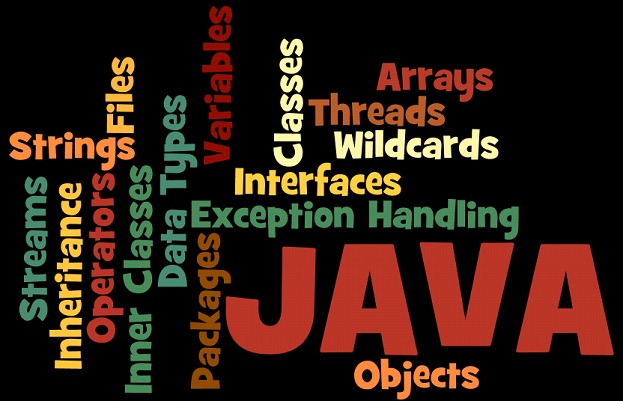

Featured AMCAT Module: JAVA Module
About the Module

The 'JAVA' module has been specifically designed to evaluate the suitability of the candidate in the software industry. The module assesses the knowledge and application of basic programming constructs, programming fundamentals and advanced programming concepts. The test contains questions on debugging programs, finding the output of programs completing incomplete programs.
The module tests a candidate on the following sections:
- Basic Programming constructs : Objects & classes, data types, variable types, modifier types, basic operators, expressions, assignment, flow control statements, decision making, numbers, characters, strings, arrays, regular expressions, methods, standard input/output, file reading/writing, creating a file, reading from a text file, handling input/output exceptions, command line arguments.
-
Programming Fundamentals:: Basics of programming like creating objects, building a user interface (Using user interface components such as buttons, Using labels, text fields, and other components, Grouping components together, Putting components inside other components, Opening and closing windows, Testing an interface), laying out a user interface (Creating a layout manager, Assigning a layout manager to a container, Using panels to organize components in an interface, Working with unusual layouts, Creating a prototype for a Java application), Inheritance (overriding, polymorphism, abstraction, encapsulation), packages.
-
Advanced Programming Concepts: : Exception handling, errors & assertions - handling an assertion error, file and streams, Threads (JAVA thread model, creating and running threads, manipulating thread state, thread synchronisation, volatile fields vs synchronizes methods, wait and notify, join and sleep, the concurrency API, atomic operations, generic methods & constructors, wildcards, inner classes and strings.
Tips to improve your programming skills:
- Know the basics:: Try to get a grip on the basics of concepts like variables , control statements, objects , classes, methods, polymorphism, inheritance, abstract classes, interfaces, threads . You can take help from a number of online tutorials available over the internet; these tutorials will guide you through the process of learning java from scratch.
- Practice coding:: You can improve your coding skills by working on projects you have never done before, and continually work upon them to increase their functionality. While the project is small, you'll learn the basics. As the project grows, you'll become more comfortable with the basics and then try new peripherals or code snippets. As the code grows larger, you'll begin to note deficiencies in your coding style and attempt to find new ways around them. As you do so, you'll remember what worked and what didn't, not making the same mistakes again for the next project.
- Set your algorithm carefully: : While solving a problem, you must set an algorithm first. Make a step by step approach on how you solve the problem and output the necessary output which is required.
- Read as many sources for JAVA programming as possible: :Some books that could be useful are: An Introduction to Computer Science and Programming by Walter Savitch, Java for Students, by Bell & Parr.




